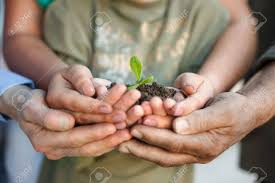I try and hope to avoid hearing the word “urgent” in my daily life. After all, I immediately associate it with “urgent care” and health problems that I (or one of my family members) need to have addressed. The word denotes a situation or state of affairs that is dire, acute, grave, critical, and the like. It is therefore, as the bad song by the 1980s rock band Foreigner put it, “Urgent, urgent, emergency.” An emergency is a top or high priority. No time to lose. Dealing with it is vital. It is imperative.
In his 1990 World Day of Peace Message, “Peace with God the Creator, Peace with all Creation,” Pope Paul II used the word “urgent” more than once. In addition to “the urgent moral need for a new solidarity” (no. 10, italics his), he wrote, “An education in ecological responsibility is urgent: responsibility for oneself, for others and for the earth” (no. 13, italics his). This latter quote is included at the beginning of the syllabus for my undergraduate course, “Green Discipleship: Theology and Ecology,” and my students were surprised by it at the start of this current semester. After all, 1990 was almost 30 years ago, before any of them were born. Most, if not all, of my 20 students — including those who were raised and educated as Catholics — have told me that they were unaware of Pope Francis’s Laudato si’, and they have expressed even more surprise that his two predecessors also urged that serious attention be given to environmental degradation and devastation, including climate change, by Catholics and others. Yet, these young students express their appreciation and respect for Laudato si’, even as they wonder, themselves (and with disappointment), about why it wasn’t a part of what (they say) they experienced at Mass or in parochial school (especially since helpful, accessible resources exist, including a short video on “Laudato si’: An Urgent Appeal for Action”!).
Pope Benedict XVI, in his 2010 World Day of Peace Message, “If You Want to Cultivate Peace, Protect Creation,” noted his predecessor’s use of that word “urgent” and said that his “appeal is all the more pressing today, in the face of signs of a growing crisis, which it would be irresponsible not to take seriously” (no. 4). Well, it’s “all the more pressing” now.
Indeed, three years after Laudato si’ was issued, at an international conference marking the encyclical’s anniversary, Pope Francis thanked attendees who had “gathered to testify to the urgent need to respond to the Encyclical’s call for change, for an ecological conversion” (his emphasis). There’s that word “urgent” again. Pope Francis also repeated that “the effects of the present imbalance can only be reduced by our decisive action, here and now” (quoting LS no. 161). To say “here and now” seems pretty urgent to me.
So I am grateful for Maria Morrow’s recent post here on “Lent and the Environment.” I would also like to highlight a statement on “Christian Ethics and the Ecological Emergency” that was issued last week and is still accepting signatures from Christian ethicists (Catholic or not) and others who teach Christian ethics (if you would like to add your signature, pleae see the contact information at the end of the statement). Although there are numerous life-and-death issues facing us today that one might list here (including but not limited to war, racism, sexism, euthanasia, homophobia, gun violence, mass incarceration, poverty, abortion, and too many more such problems), I agree with Pope Francis (and John Paul II and Benedict XVI) that these are not unrelated, including with respect to how we view and treat the rest of creation (as well as our fellow human beings). “Environmental racism” is but one sad such example.
There isn’t time for us theological ethicists to waste rearranging the tables and chairs on the sinking ship’s deck. We need to collaborate and cooperate as a community to address what’s causing the submerging, and at least to mitigate it, as well as to contribute creatively to the construction of (pro) “life boats” that will save as many lives as possible, especially the poor and vulnerable who are least responsible for, but most affected by, this present crisis (another word that surfaces constantly in recent papal documents on the environment…). 




